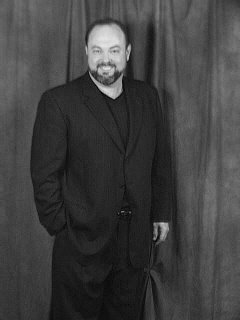
As I have pondered the Church during Great Lent, I have come to appreciate that words can be quite beautiful but it is the practice of the words that reveal authentic beauty and Truth.
Just as God's wisdom found its zenith in the enfleshing of God in Christ, so we, who are called to perpetuate this physical presence of God in the earth, must also enflesh the truths we say we believe.
This past weekend I had the joy of speaking at a parish in the Chicago area. This is a vibrant parish led by one of the most authentic parish priests I have ever met. He was brilliant, fatherly, and wise. He has been the parish priest at this parish for over 40 years. That kind of pastoral care by a good man can't help but profoundly affect his congregation.
What struck me was the congregational singing and the genuine affection the people had for one another. The most amazing thing about this was that the congregational singing was in a language other than English (not glossolalia. I avoid revealing the language so as not to predjudice the reader).
After the service, the priest asked me if I had been offended by the lack of English in the service. A few years ago I would have probably said "yes," but something struck me as I stood with these fellow Orthodox believers in the Divine Liturgy. I was expereincing their communal life in that moment of corporate worship. I was in a "church." This was more than theory. This was real life. I found myself "participating" in worship at a much deeper level than I had expereinced in many other highly ethnic congregations.
The reason for this is that these people were together. They were expressing their common life together in such a way that an "outsider" would not expereince as offputting.
Had this just been the "choir" singing the hymns and providing the responses, I would have been offended. But the reason would not be so much the language issue as a theological issue. Orthodoxy is NOT a spectator's sport. We participate. This is one of the practical applications of Persons in Communion - the persons of the Church all participate in the life of the Church. This is first seen in the Christian family, then extended to the local parish, then to the diocese, to the archdiocese, to the nationa church, and ultimately to the world.
This participatory nature of authentic "ecclesia" is best summed up by the Apostle Paul when he wrote: "And He Himself gave some to be apostles, some prophets, some evangelists, and some pastors and teachers, for the equipping of the saints for the work of ministry, for the edifying of the body of Christ, till we all come to the unity of the faith and of the knowledge of the Son of God, to a perfect man, to the measure of the stature of the fullness of Christ; that we should no longer be children, tossed to and fro and carried about with every wind of doctrine, by the trickery of men, in the cunning craftiness of deceitful plotting, but, speaking the truth in love, may grow up in all things into Him who is the head—Christ— from whom the whole body, joined and knit together by what every joint supplies, according to the effective working by which every part does its share, causes growth of the body for the edifying of itself in love." (Ephesians 4:11-16, emphasis mine)
To the extent that our parishes are participatory parishes then they are expressions of an Orthodox ecclesiology. To the extent that they are not participatory then, well....
Next - The Second Practical Application of an Orthodox Ecclesiology!



No comments:
Post a Comment